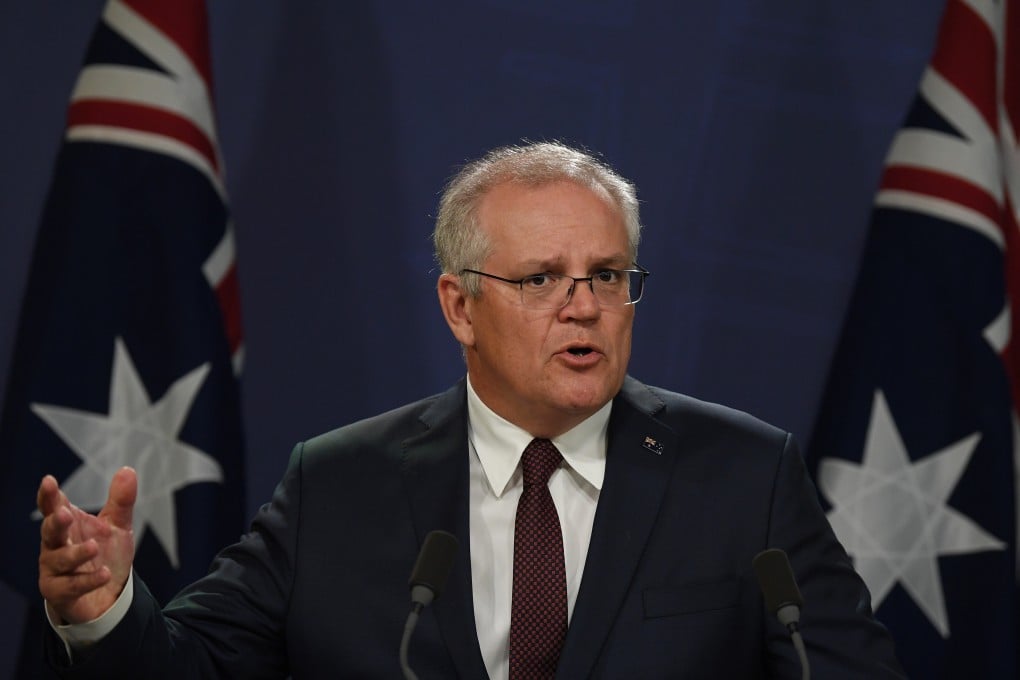Australian PM criticised for not directly condemning Senator who asked Chinese-Australians to denounce CCP
- Asian-Australians have asked why Scott Morrison did not issue a stronger response to his party colleague Eric Abetz’s ‘McCarthyist racism’
- The opposition said an apology was necessary and if it did not come from Abetz, the government should step in and ‘stand up for an inclusive community’

Morrison on Friday was asked about Senator Eric Abetz’s line of questioning of Australians Osmond Chiu, Wesa Chau and Jiang Yun at a Foreign Affairs, Defence and Trade public inquiry earlier in the week, and if denouncing the Chinese Communist Party was a pledge foreign-born Australians must make.
Said Morrison: “There is only one pledge that any Australian citizen should take and that’s the pledge they take when they become an Australian citizen.”
Asked what he made of Abetz’s question, he did not respond directly but only said “the normal practices should be observed”.
The prime minister’s spokesman on Saturday told This Week in Asia that while Morrison did not directly condemn his party colleague’s actions, he “contradicted” Abetz’s approach.
Standing firm against ugly dictatorships is everyone’s duty. I, therefore, make no apology for the exchange between Mr Chiu and myself yesterday